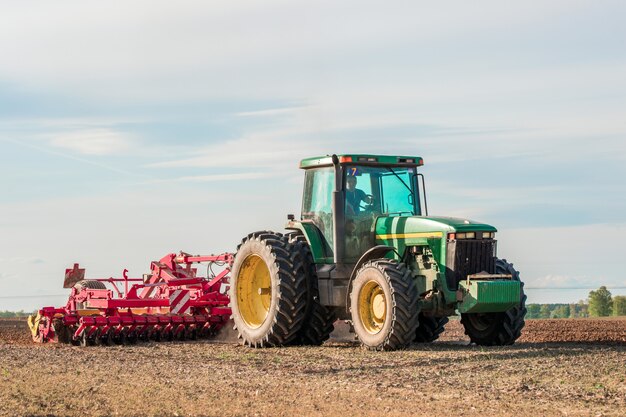Farm equipment is one of the most significant investments for any farmer. Ensuring it operates efficiently and lasts for years requires regular maintenance. Proper care not only prevents costly repairs but also reduces downtime, allowing farmers to focus on their work. Here’s how to maintain your farm equipment and keep it in top condition.
1. Follow Manufacturer Guidelines
Every piece of equipment comes with a user manual that details specific maintenance schedules and requirements. Following these guidelines ensures that the equipment operates as intended. Pay attention to:
- Recommended oil changes and filter replacements.
- Regular lubrication of moving parts.
- Specific cleaning instructions to avoid damaging sensitive components.
2. Inspect Equipment Regularly
Frequent inspections can identify potential issues before they become major problems. Create a checklist to examine:
- Tires: Check for wear, cracks, or improper inflation.
- Belts and chains: Ensure they are properly tensioned and free of damage.
- Hydraulic systems: Look for leaks or low fluid levels.
- Electrical components: Test lights, wiring, and battery performance.
Catch and address minor issues early to prevent expensive breakdowns.
3. Keep Equipment Clean
Dirt, mud, and debris can cause equipment to wear out faster. Cleaning your machinery after use prevents buildup in sensitive areas.
- Use a pressure washer to clean large equipment.
- Avoid directing water at electrical systems or bearings.
- Remove caked-on mud from undercarriages and wheels.
Regular cleaning also makes it easier to spot wear and tear.
4. Store Equipment Properly
Exposing farm equipment to harsh weather can lead to rust and other damage. Proper storage is essential for longevity.
- Store equipment in a covered, dry area, such as a shed or barn.
- Use tarps to cover machinery if indoor storage isn’t available.
- For long-term storage, drain fuel and fluids to prevent clogging or corrosion.
5. Replace Worn Parts Promptly
Delaying the replacement of worn-out parts can strain other components and lead to extensive damage. Keep a stock of commonly used spare parts, such as:
- Oil and air filters.
- Belts, hoses, and seals.
- Blades for mowers and tillers.
Regularly replace these parts as per the manufacturer’s recommendations.
6. Lubricate Moving Parts
Proper lubrication reduces friction, prevents wear, and improves the performance of farm equipment.
- Use high-quality grease and oils.
- Lubricate joints, bearings, and pivot points frequently.
- Follow the lubrication schedule provided in the equipment manual.
Over-lubricating can also cause problems, so apply the correct amount.
7. Monitor Fluid Levels
Running equipment with low or dirty fluids can cause overheating and damage. Regularly check:
- Engine oil and coolant levels.
- Hydraulic fluid and transmission oil.
- Fuel filters to ensure clean fuel flow.
Change fluids as needed and use the type specified by the manufacturer.
8. Train Operators
Improper use of equipment is a leading cause of breakdowns. Ensure that all operators:
- Are trained in proper handling and safety practices.
- Understand the equipment’s capabilities and limitations.
- Avoid overloading or pushing machines beyond their capacity.
Proper usage reduces unnecessary wear and extends equipment life.
9. Schedule Professional Maintenance
While regular checks are essential, professional maintenance is equally important. Hire certified technicians for:
- Annual servicing and tune-ups.
- Diagnostics of complex systems, such as engines and hydraulics.
- Advanced repairs that require specialized tools and expertise.
This ensures thorough inspections and prevents hidden issues from escalating.
10. Use Equipment Seasonally
Idle equipment can deteriorate over time. If certain machinery is only used seasonally:
- Start and run the equipment periodically to keep parts lubricated.
- Inspect and test it before the start of each season.
- Perform a full maintenance check at the end of its working season.
Maintaining farm equipment is not just about preventing repairs but also about ensuring efficiency and productivity on the farm. By following a regular maintenance schedule, inspecting your machinery, and addressing issues promptly, you can avoid expensive repairs and extend the lifespan of your equipment. A well-maintained machine is a reliable partner in achieving farming success.
Join 'Farmers Mag' WhatsApp Channel
Get the latest Farming news and tips delivered straight to your WhatsApp
CLICK HERE TO JOIN






